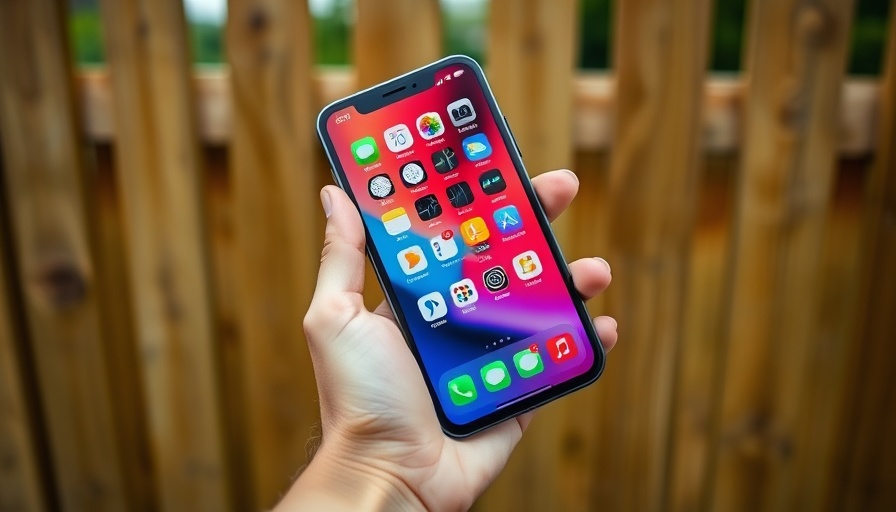
Lawmakers' Concerns Rise Over Apple and Alibaba Collaboration
Amid growing tensions between the United States and China, a controversial partnership between Apple and Alibaba has caught the attention of U.S. lawmakers. The deal, which aims to integrate Alibaba's AI features into iPhones sold in China, has raised significant concerns regarding data privacy and regulatory commitments. With numerous questions unanswered, lawmakers are demanding more transparency from Apple, reflecting a broader unease about the tech giant's dealings in a rapidly changing geopolitical climate.
Why This Deal Matters to National Security
At the heart of the objections is the question of data security. Representative Raja Krishnamoorthi has raised alarms, calling Alibaba "a poster child for the Chinese Communist Party’s military-civil fusion strategy". This indicates that lawmakers perceive a potential threat not just to consumer privacy but also to national security interests. As technologies like AI become increasingly integrated into everyday devices, the implications of this partnership stretch beyond mere business considerations.
The Unfolding Tech War: Contextualizing the Concerns
The Apple-Alibaba deal occurs against the backdrop of rising technology competition between the U.S. and China. Following a series of trade tensions and tariff threats, U.S. lawmakers are particularly wary of any agreements that could empower Chinese companies, especially in sectors considered strategic or critical. As the tech landscape evolves, this scrutiny over partnerships and deals is likely to intensify.
Business Impact: Apple’s Turbulent Waters
Apple, while one of the largest companies globally, is not immune to the implications of this deal. Lawmakers' inquiries come at a time when the company is contending with not just geopolitical pressures but also fluctuating consumer sentiment. Engaging with Alibaba could open up new opportunities in the Chinese market, yet it also risks alienating customers in the U.S. and other markets where concerns over data privacy are paramount.
Looking Ahead: Predictions for Tech Industry Collaboration
As tech companies expand their reach, collaborations like the Apple-Alibaba deal could become increasingly prevalent, yet so too will scrutiny from governments around the world. It raises questions about what the future holds for international tech partnerships. If Apple cannot assure lawmakers and consumers that their data will be safeguarded, they might face backlash not only from legislators but also from those who prefer safer alternatives.
Practical Insights: What Consumers Should Know
Consumers should stay informed about the implications of such deals on their privacy and data security. Understanding how companies operate within different regulatory environments can help consumers make more informed decisions about their technology usage. If you are using an Apple device, it’s worth keeping an eye on developments about the company’s partnerships and the ensuing impact on privacy standards.
Conclusion: Call for Informed Engagement
As the tech industry continues to evolve amid geopolitical pressures, consumers and stakeholders alike must remain vigilant about the implications of corporate collaborations on national and personal security. Given the intricacies of data ownership and privacy, staying informed will empower individuals to demand accountability from tech giants like Apple.
 Add Row
Add Row  Add
Add 



Write A Comment